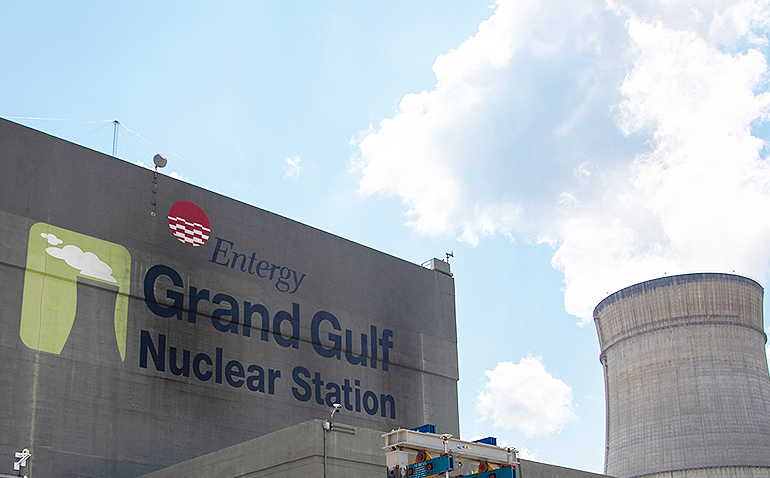
Grand Gulf Report Card for Affordable and Reliable Electricity — F
When it comes down to the essentials for living, affordable and reliable electricity would be close to the top of most people’s list. Mississippi could have more affordable and more reliable electricity if the utility monopolies were more concerned for their customers rather than their shareholders. Case in point – the Grand Gulf Nuclear Power Plant.
Entergy customers in Mississippi, Louisiana and Arkansas pay for the Grand Gulf Nuclear Power Plant in Port Gibson and receive most of the power it produces — when it’s operational. Rated the worst performing nuclear plant in the U.S., Grand Gulf had a capability factor of 72 percent in 2020, compared to the nuclear industry average of 94 percent.
When Grand Gulf is offline, Entergy must buy power from other entities, which is more expensive than producing it at Grand Gulf. This additional cost is passed along to its customers, who are also charged for the ongoing, fixed costs of Grand Gulf even when it sits idle.
This past July, Moody’s downgraded the financial outlook for the Entergy subsidiary which owns Grand Gulf from stable to negative because of legal challenges the company is facing. This means higher interest costs to Grand Gulf that will be passed on to its customers. (Grand Gulf is owned by Subsidiary-Systems Energy Resources, Inc. or SERI)
The legal challenges involve both federal and state level regulators. First, A federal administrative law judge has ordered Entergy to refund over $500 million to its customers because of a sale-leaseback complaint filed by state regulators of Mississippi, Louisiana and Arkansas’ public service commissions. A majority of federal commissioners must first approve the judge’s order for the refund.
A second complaint filed with federal regulators by the states claims excessive costs and damages exceeding $360 million paid by customers for imprudent operations of Grand Gulf from 2012-2020. State regulators have also requested an investigation of the prudency of Grand Gulf’s $800 million expansion initiated in 2012.
Grand Gulf receives a failing grade if affordable and reliable electricity for its customers is the goal. It’s supposed to be the goal of the public service commission who regulates the utility monopoly. This structure seems to have room for improvement as evidenced by these legal complaints. Seems a proactive structure in place of a reactive one would better serve the customers’ interests.
In some states, a consumer advocate having extensive knowledge and understanding of the energy industry is watching out for the customers’ interests. If Mississippi had a consumer advocate, how much more affordable and more reliable would your electricity be?
Sign up for BPF’s latest news here.
